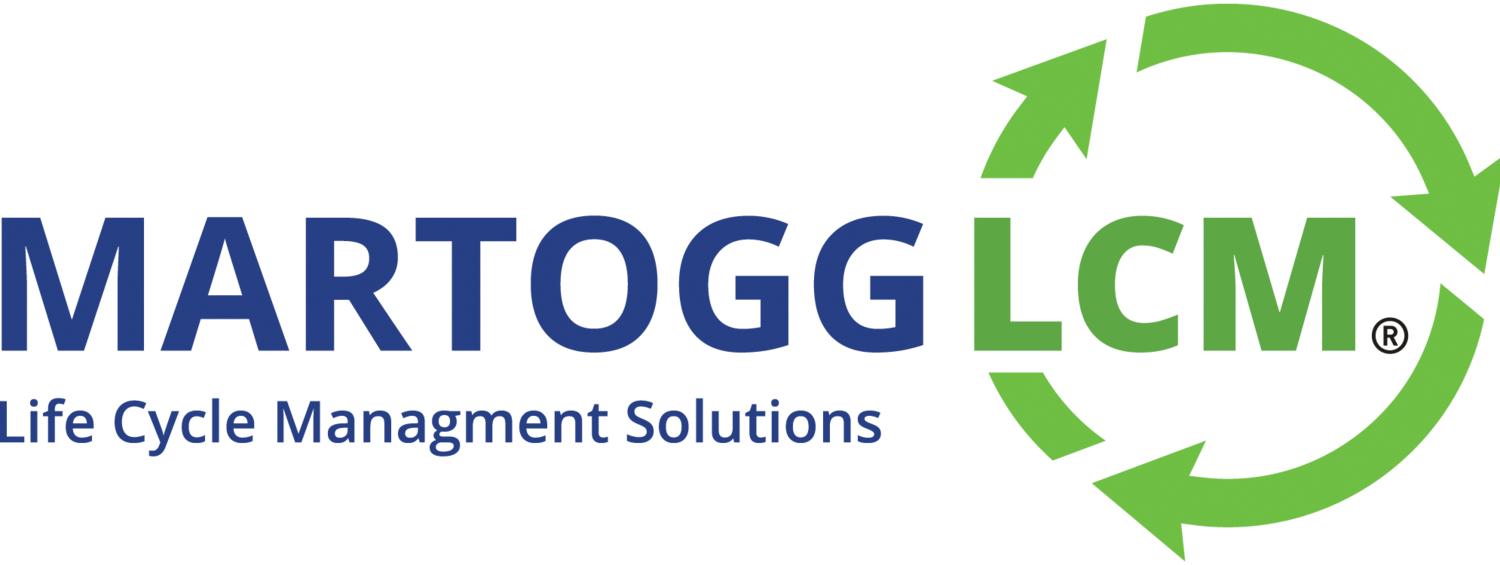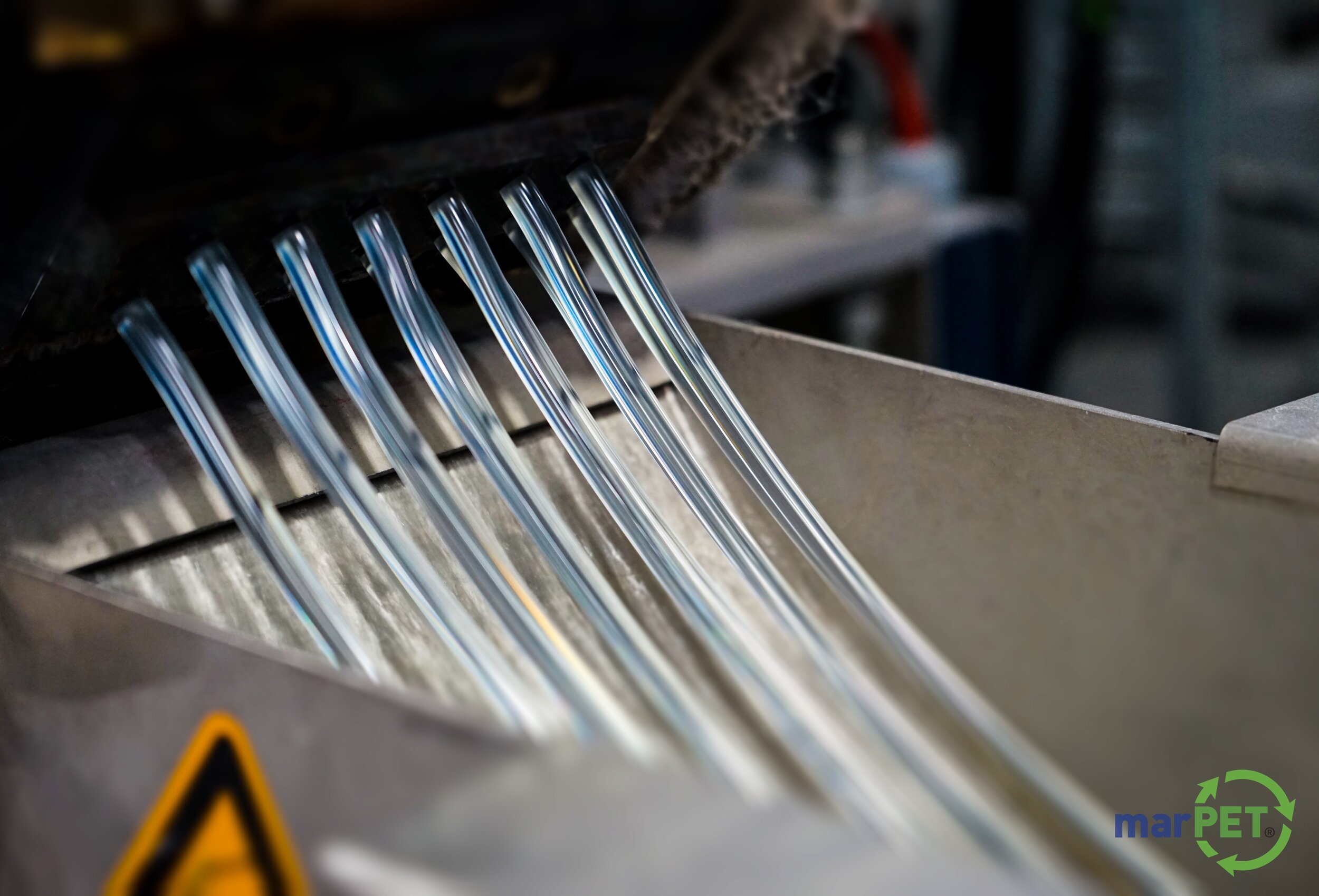Case Study
ALDI, TRENDPAC & MARTOGG & CO COLLABORATION TOWARDS SUSTAINABILITY
Waste crisis – driving need for change
Every year, Australians generate 2.7 tonnes of waste, and approximately, 40% of this waste ends up in landfill (1). To better manage waste there is a need to better manage what happens to products before they become waste – that is, before a product is thrown out. Currently, the Australian economy remains structured around exporting virgin and recyclable materials, which are made into products offshore and then re-imported. Such an economic structure makes Australia reliant on international markets and the policy priorities of those countries (1).
Figure 1: Stages of recycling Australia’s mixed kerbside wastes
Changes to Australia’s waste management and recycling landscape have combined to create new opportunities for industries through on-shore recycling and manufacturing. National bans on waste exports, the global shift to circularity in packaging, and the redefining of waste as a resource have highlighted the potential for the industry to do more with what people generally discard as rubbish (4).
The path to a circular economy commences when a product is manufactured. Hence, requires thought around raw materials and components that are used to make a product. Product stewardship is necessary to drive change and shift the responsibility for waste to manufacturers, importers, and producers. Consumers also have a responsibility to actively consider and choose to buy recycled goods when they are shopping (1).
For the domestic recycling industry to foster a “circular economy”, manufactured goods need to be consumed, reused, and recycled locally. Hence, recycled products strengthen the value of waste and the domestic economy (3). Domestic recycling of household consumables creates opportunities for new jobs and investment. Therefore collectively, if companies commit more towards circularity, Australians can capture and create value from post-consumer waste, particularly plastic. It might seem like an elusive dream, but companies like ALDI, TrendPac, and Martogg are now doing their part by working together to develop more sustainable packaging solutions.
Martogg, Trendpac, and ALDI collaborate on sustainable packaging initiatives as part of the business goal of stimulating a circular economy in Australia. ALDI initially committed to including thirty percent recycled materials in their plastic packaging by the end of 2025, but this collaboration has led to ALDI laundry products being on shelves made from post-consumer recycled content. These products are manufactured by Trendpac, using marPET® produced by the Martogg Group.
“Trendpac have developed product packaging that is not only made from 100% recycled materials but at very affordable pricing”
Support for Australian Circular Recycling
ALDI has demonstrated its commitment to a circular economy with the implementation of its new sustainable laundry packaging. This initiative is anchored in the procurement of Australian made rPET; with the ALDI Green Action Dishwashing Liquid, Laundry Liquid, and Wool Wash products all made from 100% recycled content.
Dean Fleishman, Buying Director of ALDI’s Laundry products, says that the partnership with Trendpac is a perfect example of how innovation and low cost can work hand in hand. “As a business, we have set the goal to stimulate an Australian circular economy by committing to include 30% recycled materials in our plastic packaging by the end of 2025. The team at Trendpac have far exceeded this target and have developed product packaging that is not only made from 100% recycled materials, but at very affordable price. This solution has reduced single use packaging and is a credit to the bold vision of our partnership.”
ALDI’s long-term partnership with TrendPac
Manufacturer of the ALDI Green Action products, Trendpac, has been supplying finished Household cleaning & Personal Care products since 1963 and is committed to supporting sustainability and the use of recycled materials where possible.
Working with Trendpac’s Procurement Manager Jason Jones and Sales Manager, Lachlan Symons, has been instrumental in a seamless transition away from virgin resin. When asked about the processability and quality of the recycled PET being used into the ALDI Green Action products Trendpac sighted that “the transition to marPET® has resulted in only minor adjustments to our processing set up and we have been very impressed with the quality and consistency of the material relative to what we have seen from other supply options”.
Martogg’s sustainable efforts
The producer and supplier of the recycled PET, Martogg, located in Dandenong, Victoria has praised the partnership between Trendpac and ALDI in adopting a sustainable approach to packaging and driving the circular economy within Australia.
Martogg Account Manager, Scott Schumacher explains that Trendpac’s drive and initiative to use the domestically produced marPET® brand over import options and reducing their reliance on virgin material is commendable. It has also demonstrated ALDI’s commitment to supporting the community with products that are not only recyclable but produced using 100% recycled PET plastic”.
Martogg Groups branded recycled PET “marPET®” is produced using Vacurema® technology in Victoria, Australia. The company installed their first line in 2016 and has continued to invest in infrastructure to support growing demand. Martogg celebrated the installation of their second Vacurema® line in December 2019 and have a third line due for commissioning in late 2020 that will give a collective capacity of 23,000 tonnes per annum.
Martogg has applauded the partnership between ALDI and TrendPac in adopting a sustainable approach to packaging. The company has long a long history in plastic recycling, since it was founded in 1975, and formalized their commitment to recycling by launching Martogg Life Cycle Management (LCM) in 2006. The main business goal is to create value-added recycled polymer compounds obtained from both industrial and post-consumer waste.
Martogg recognizes that recycling virgin PET is not only beneficial for the environment, but it also makes business sense. Sustainability is the way of the future, with consumers demanding brands to do more in the way of sustainability to retain them. Corporate sustainability is now on top of many consumers’ minds, and they are willing to pay more for sustainable products (including their packaging).
“Consumers will be pleased to know that these products are not only Australian made, but also produced using locally manufactured recycled PET”
The trio’s sustainable collaboration
Now, these companies are working together to achieve more sustainable solutions for packaging. By moving towards a circular economy, ALDI seeks to drive sustainable packaging by working with Australian manufacturing companies to ensure the packaging they use can be reused, recycled, or composted.
It is also important to note that the products are Australian made and produced using locally produced rPET (marPET®). The effective use of available materials in the country translates to less waste and lower cost. This would also mean an improved approach to the supply chain and new sources of value for consumers.
Conclusion
With this collaboration, it is evident that companies are now taking the necessary steps to fix the linear model of plastic consumption that has seen plastic waste enter landfills and the environment. If more companies follow suit, then plastic packaging waste will be reduced significantly, leading to a cleaner and greener environment for years to come.
‘A Principle Isn’t a Principle Until it Costs You Something’
Download
For a copy, please enter your details and a copy will be sent directly to your inbox!




